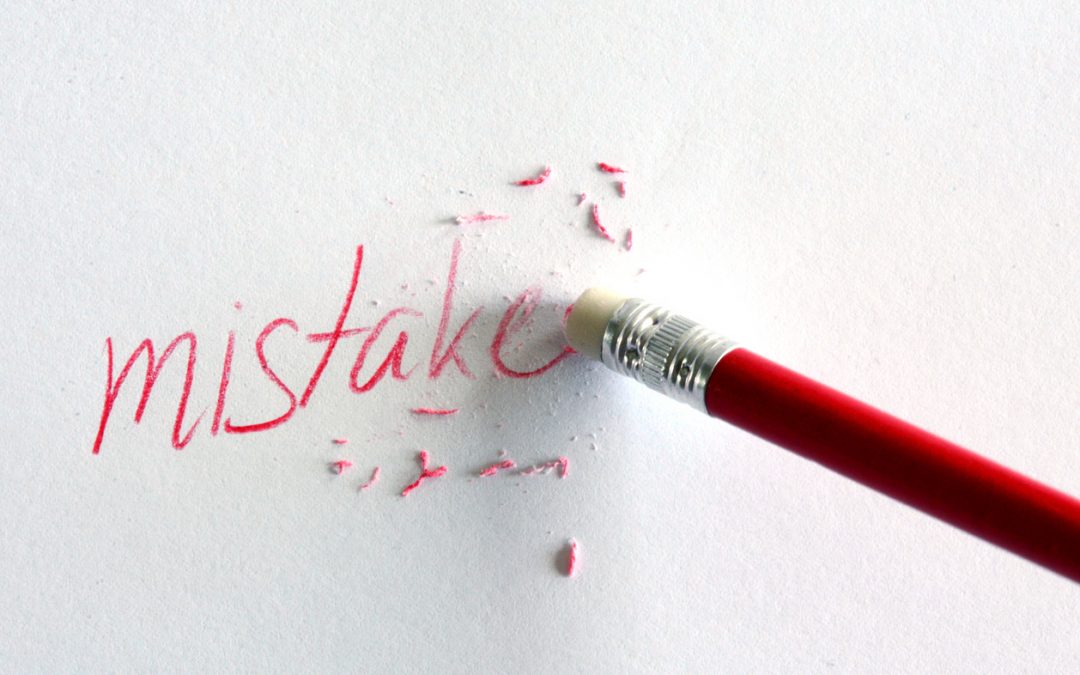I blew it last Saturday. Well, actually I blew it several times last week. I was impatient with my wife, and she called me on it. I don’t know about you, but I can’t seem to avoid making relationship mistakes. Let me tell you about this one and then share some lessons to be learned from it.
Who made the relationship mistakes?
My wife has a tendency to not answer my questions or respond to my comments right away. When she does that, I have a tendency to react with a good dose of impatience. Sometimes I re-ask the question more loudly, with an irritated tone in my voice. Or I say something sarcastic, like “I guess my conversation isn’t very interesting to you.”
Of course I could blame her for not answering. It’s rude and I feel disrespected when she does it. What I know about my wife, however, is she does not mean to be disrespectful.
Rather, she’s a classic introvert who thinks about her replies before she blurts them out. Sometimes, she’s just so focused on something else, she literally has no idea I even said anything. If that’s how she’s wired, how can I blame her?
I could also say it really isn’t a big deal–I raised my voice a little, and was a bit sarcastic, but is that a crime? I didn’t completely blow up or smack her around. But it was a big enough deal to her that she made the effort to talk to me about it. If it matters to someone I love, then it better matter to me.
Or I could say I wasn’t impatient, but I really was, so that wouldn’t be the truth. I could also try to justify it because I’m under a lot of stress and facing several work deadlines. That’s almost always the case, however, and I’d hate to think that I could only respond well when I’m feeling stress-free.
Not that she’s perfect, but clearly this time I was making the relationship mistakes. Blaming, minimizing, denying, or rationalizing them would have left her feeling like her objections were falling on deaf ears. Arguing with her would only serve to drive a wedge between us.
Not getting defensive
Instead, I listened, agreed, and apologized. I thanked her for making me aware of what I was doing and how it was affecting her. Saying these things cost me nothing and did not diminish my personal value because everyone makes relationship mistakes sometimes.
I told her how I was going to try to think about her long pauses differently. Instead of interpreting them as disrespect, which is distorted thinking, I could just see it as part of her nature. That should lead me into a different response, like waiting longer, or gently asking if she heard me.
As a result, my wife felt listened to and valued. She felt good about our relationship again. I was proud that I could hear negative feedback without getting defensive—something I couldn’t do a few years ago. I also felt good that I responded in a way that improved rather than damaged our marriage.
Lessons learned
Here are some lessons I hope you see in my mistakes:
- None of us are perfect. Ever. Growth takes time and self-improvement never ends. Getting better feels good, however, so feedback and growth are both good things.
- Blaming, minimizing, denying, or rationalizing doesn’t help us grow, and it certainly doesn’t help our relationships.
- Admitting mistakes costs us nothing. If we struggle to admit our relationship mistakes, it is probably because we are falsely connecting “I made a mistake” to “I am a bad person.” Don’t go there, because the thought is not true!
- Our best response is to listen to complaints and criticisms, accept the parts that are true, refocus our energy, and continue to clean up the poor reactions that we’ve had.
Relationship mistakes are inevitable. Own yours and use that feedback as an opportunity to get better. You’ll like the results this approach has on your relationships.


Recent Comments